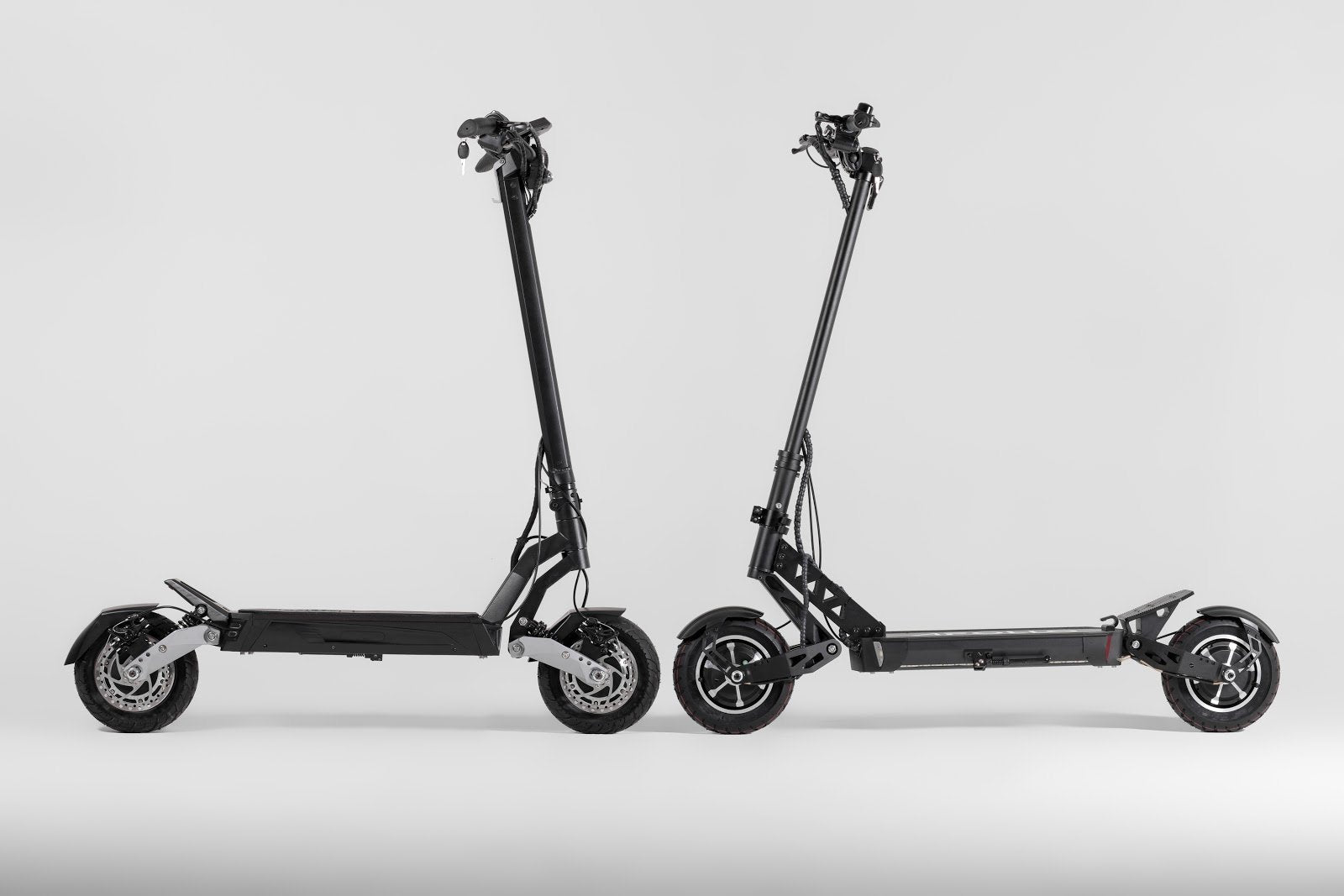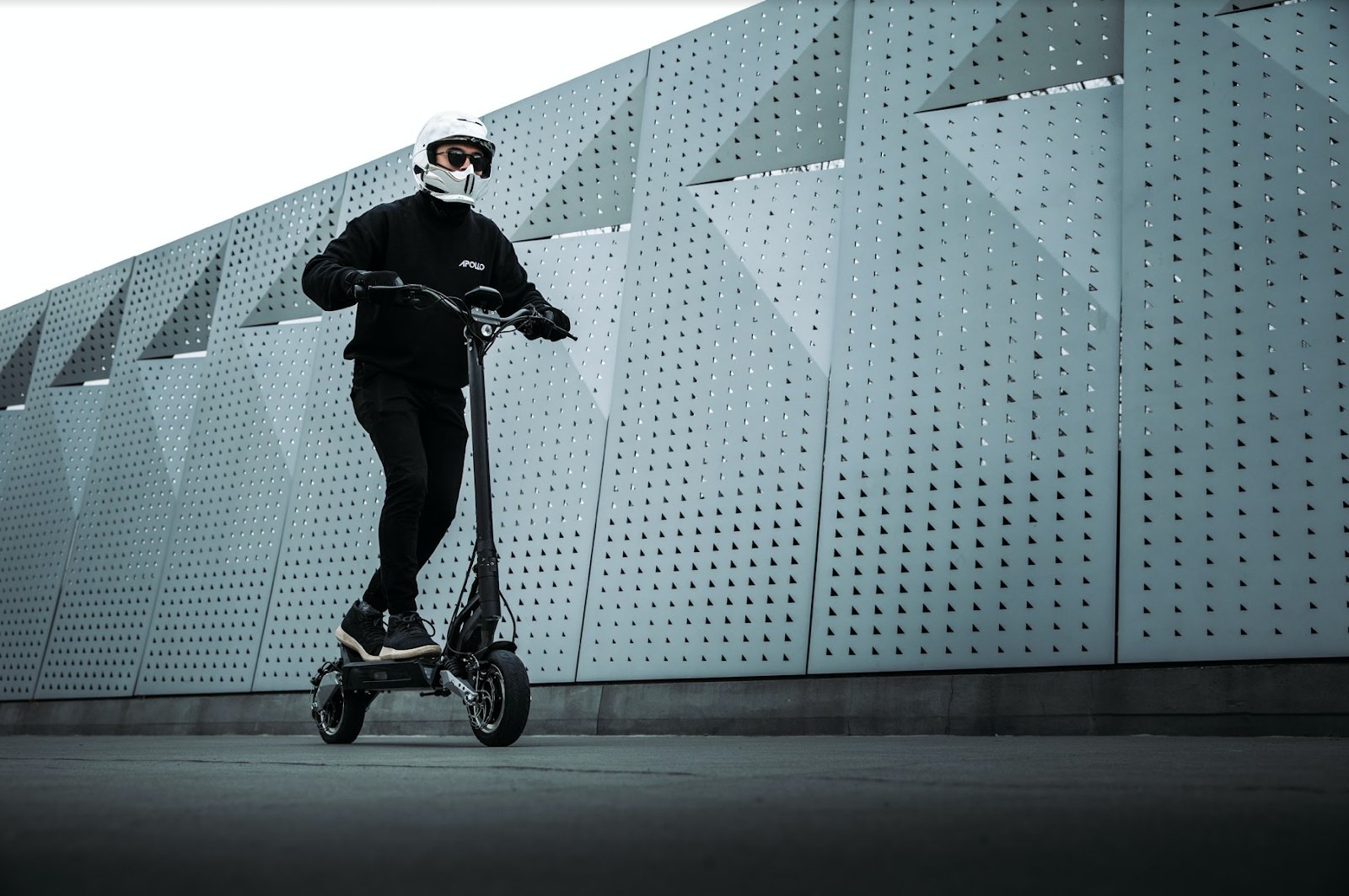Are Electric Scooters Legal in Canada?
The Ultimate Guide to Riding Electric Scooters in Canada in 2019.
Electric scooters are growing in popularity in Canada, and you can now see them in cities like Montreal, Toronto, and Vancouver. They’re fun, convenient, and particularly adapted to Canadian cities. Now, if you are looking to buy an electric scooter and ride it in your city, you’ve probably asked this question: are electric scooters legal? Rest assured, you’re not alone in this situation.
It’s easy to dismiss electric scooters as “toys” or “gadgets” as some people do. However, you may also have heard horror stories about $500 fines. Information from the provincial ministries of transportation can be unclear or difficult to access; some ministries don’t even have any regulation that specifies what to do with scooters. The problem is, governments are taking too much time to adapt their laws.
Thankfully, we did the research for you to understand if electric scooters are legal in Canada. We’ve read through the different provincial laws and took into account our customers’ experience using electric scooters in those provinces. The bottom line is, you can ride an electric scooter in Canada. Depending on where you live, the laws may still be suboptimal – but things are changing and electric scooters are coming anyway.
Are Electric Scooters Legal in Vancouver?
The laws regarding motor vehicles in British Columbia are found in the Motor Vehicle Act. According to this act:
• Electric scooters are legal on private property or on trails and pathways;
• Electric scooters are NOT legal on roads or sidewalks.
British Columbia’s laws lack clarity about electric scooters. Its definitions of motorized vehicles and e-bikes do not encompass electric scooters. As a result, some riders received fines for “lack of insurance on a motorized vehicle,” not for riding an electric scooter. This situation is ironic because ICBC (British Columbia’s major insurer) does not provide insurance for this type of vehicle at the moment. Besides, most commercial scooters (such as the Xiaomi M365 or Ninebot ES2) are limited to speeds of 25 km/h, powered by a 250 W motor.
What’s frustrating in the case of British Columbia is that electric bikes are perfectly legal, yet they reach average speeds of well over 30 km/h. There is a clear demand for electric scooters in B.C., yet the laws are not keeping up with that demand. Apollo has shipped over 50 units to B.C. in Q1 alone, which goes to show how interested in electric scooters people in B.C. are. We recommend riders to ride safely, with additional lighting and protective gear. We are yet to hear of a fine from our customers.
If you want to read more about the laws surrounding the use of electric scooters in British Columbia, visit ICBC’s website.
Are Electric Scooters Legal in Calgary and Edmonton?
Alberta’s laws regarding electric vehicles can be found in the Traffic Safety Act.
According to this act:
• Electric scooters are legal on private property, on sidewalks, and on bike paths;
• Electric scooters are NOT legal on roads.
Electric scooters do not comply with any of Alberta’s current definitions found in the Traffic Safety Act for electric vehicles. However, Alberta’s government leaves regulations on electric scooters up to municipal governments. While there have been encouraging signs from municipal levels of government, this way of functioning is frustrating as it prevents mass adoption and lacks coherence.
In July 2018, the city of Calgary adopted a resolution that called for a pilot project allowing bike and scooter sharing service providers to operate. In addition, CBC reported last May that the city of Edmonton was planning on amending its bylaws to allow electric scooters on the road as long as they do not exceed 50 km/h. The Traffic Safety Act, however, remains unchanged to this day.
It is unclear what users need to comply with from a safety standpoint since electric scooters are vaguely defined in Alberta’s laws. However, we would expect the safety bar to be set fairly high based on the difficulties with e-bike rentals. According to an article by McCarthy Tetrault, “e-scooters may only be used on private property, or on bicycle paths or sidewalks in those Alberta urban municipalities, cities, towns, or villages that allow such use.”
Are Electric Scooters Legal in Toronto?
Ontario’s laws regarding motor vehicles in Ontario can be found in Ontario’s Highway Traffic Act.
According to this act:
• Electric scooters are legal on private property or on trails and pathways;
• Electric scooters are NOT legal on roads or sidewalks.
The problem is, as in British Columbia and Alberta, Ontario’s law definitions for motor vehicles and electric-powered bikes, do not encompass electric scooters, which is why the law does not permit them on roads. Ontario, like British Columbia, has allowed electric bicycles to spread through the city, yet the law prohibits electric scooters.
Even with these suboptimal laws, the electric scooter movement is happening in Toronto as well as in other cities in Ontario. By some estimates, there are over 10,000 electric scooters in the Greater Toronto Area (GTA) as of today. So, once again, the movement is happening. The feedback from our Ontario customers is that police officers are quite lenient as long as you ride the scooters with common sense.
Are Electric Scooters Legal in Montreal?
Unlike other provinces, Québec has a pilot project made to create an environmentally friendly to electric scooters and to test how they can work with other transportation methods. The laws can be found in Québec’s Highway Safety Code under bike regulations and in Canada’s Motor Vehicle Safety Act.
According to these acts:
• Electric scooters are legal on roads where the speed does not exceed 50 km/h and private property;
• Electric scooters are NOT legal on bike paths and sidewalks.
All electric scooter riders must be riding on the street, have completed a training course from the scooter renter or manufacturer, and be over 18 years old. Additionally, helmets and proper lighting are required. Though these seem like fairly strict regulations, what we’ve seen is that Montreal police officers have been the most laidback. We are yet to hear of any tickets.
You can find more information about Québec’s pilot project on the SAAQ’s website.
In conclusion, are Electric Scooters Legal in Canada?
While many provincial laws remain suboptimal, electric scooters are coming to Canada whether governments like it or not. The proof is, certain levels of governments in different provinces have started taking measures to make their city or province more friendly to electric scooters. This is because there is clear demand from residents, and electric scooters are a good, eco-friendly transportation method for many people around Canada. The best course of action is to control this inflow of electric mobility and incentivize safe usage.
We know the laws can be confusing; even after reading this guide, you may still have questions. We are happy to answer any questions and share experiences about our journey of selling electric scooters in Canada – don’t hesitate to get in touch by emailing us.






